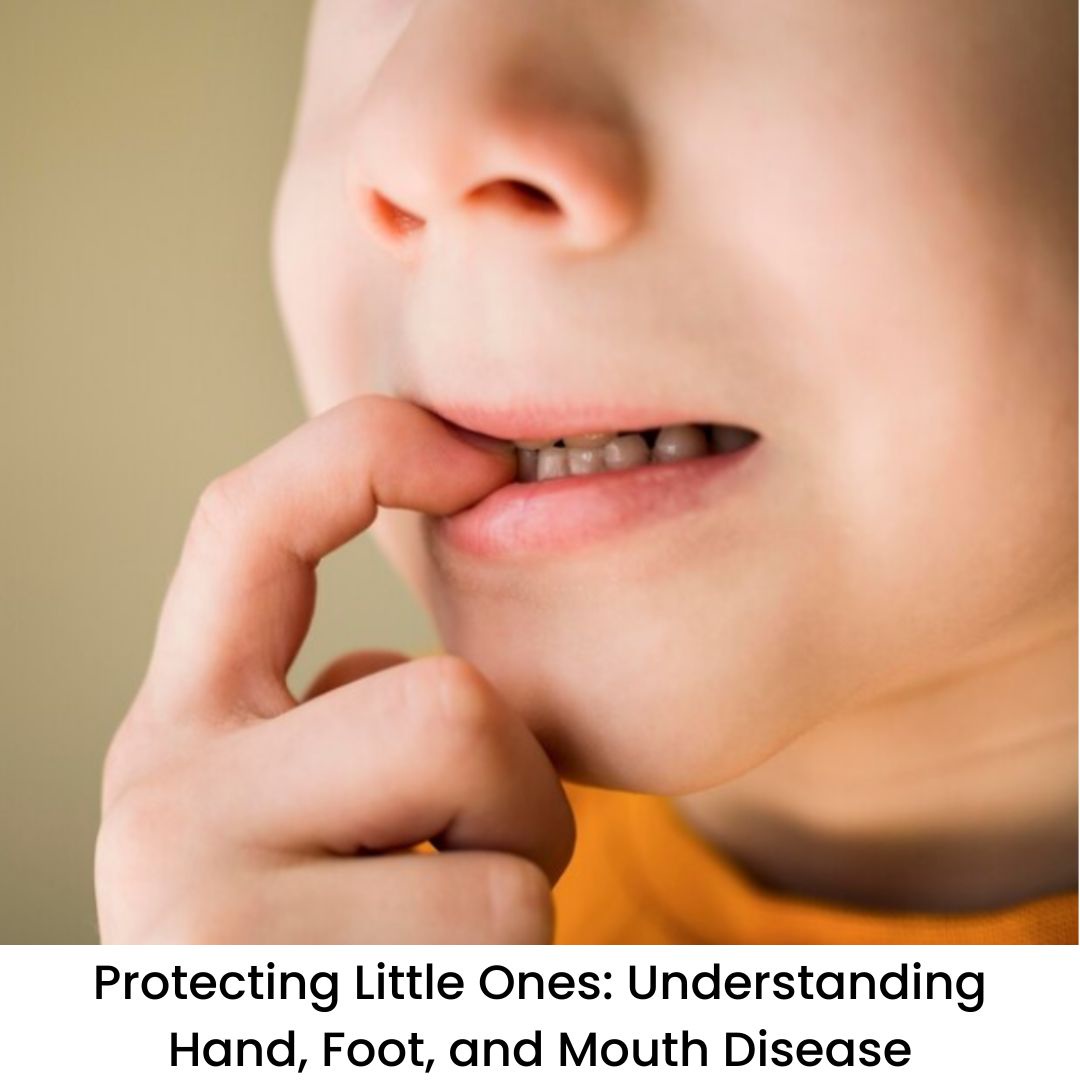Introduction :
Hand, Foot, and Mouth Disease (HFMD) is a common viral illness that primarily affects young children, causing symptoms like fever, sore throat, and characteristic rashes on the hands, feet, and mouth. While HFMD is usually mild and self-limiting, it can be concerning for parents. Understanding the causes, symptoms, and preventive measures guided by a Child Specialist In Coimbatore and its essential for protecting little ones from this contagious illness.
Understanding Hand, Foot, and Mouth Disease
HFMD is caused by various strains of viruses, most commonly Coxsackievirus A16 and Enterovirus 71. These viruses spread through close personal contact, respiratory droplets, and contact with contaminated surfaces. Children under five years old are most susceptible to HFMD due to their immature immune systems and tendency to put objects in their mouths.
The incubation period for HFMD is typically 3 to 7 days, during which the child may show no symptoms but can still spread the virus. Once symptoms appear, they often include:
- Fever: The initial symptom is usually a low-grade fever, often accompanied by malaise and loss of appetite.
- Sore Throat: Painful blisters or ulcers may develop in the mouth, making swallowing uncomfortable.
- Rash: Red spots or small blisters may appear on the palms, soles, buttocks, and around the mouth. These can be itchy or painful.
- General Discomfort: Some children may experience fussiness, irritability, or difficulty sleeping due to discomfort from the symptoms.
Protecting Your Child from HFMD
Preventing HFMD involves practicing good hygiene and taking precautions to reduce the risk of exposure to the virus. Here are some essential tips for protecting your little ones:
- Hand Hygiene: Encourage regular handwashing with soap and water, especially after using the toilet, changing diapers, and before eating or preparing food. Teach children to wash their hands thoroughly, including between fingers and under nails, for at least 20 seconds.
- Surface Cleaning: Disinfect frequently-touched surfaces and objects, such as toys, doorknobs, and countertops, to reduce the spread of the virus.
- Avoid Close Contact: Limit close contact with individuals who have HFMD, and encourage your child to avoid sharing utensils, cups, and toys with others, especially during outbreaks.
- Practice Respiratory Etiquette: Teach children to cover their mouth and nose with a tissue or their elbow when coughing or sneezing to prevent the spread of respiratory droplets.
- Stay Home When Sick: Keep your child home from daycare or school if they are experiencing symptoms of HFMD to prevent spreading the virus to others.
Treatment and Management
While there is no specific treatment for HFMD, supportive care can help alleviate symptoms and promote comfort:
- Fever Management: Use acetaminophen or ibuprofen to reduce fever and alleviate discomfort. Follow the recommended dosage based on your child's age and weight.
- Pain Relief: Offer cold foods and beverages or over-the-counter pain relievers to ease sore throat and mouth pain. Avoid acidic or spicy foods that can irritate mouth sores.
- Hydration: Encourage your child to drink plenty of fluids to prevent dehydration, especially if they have difficulty swallowing due to mouth ulcers.
- Comfort Measures: Provide soft, bland foods that are easy to swallow, and offer extra cuddles and reassurance to comfort your child during their illness.
Most children with HFMD recover within 7 to 10 days without complications. However, in rare cases, complications such as dehydration, viral meningitis, or encephalitis may occur, especially in infants or children with weakened immune systems. Seek medical attention if your child experiences severe symptoms or if you have concerns about their condition.
Conclusion
Protecting little ones from Hand, Foot, and Mouth Disease involves a combination of preventive measures, good hygiene practices, and prompt management of symptoms. By understanding the causes, symptoms, and appropriate actions to take, parents can help reduce the risk of HFMD and ensure the well-being of their children. Get Preventive measures from Pediatric surgery in Coimbatore and Stay informed, stay vigilant, and remember that knowledge and prevention are key to keeping your family healthy and happy.


No comments yet